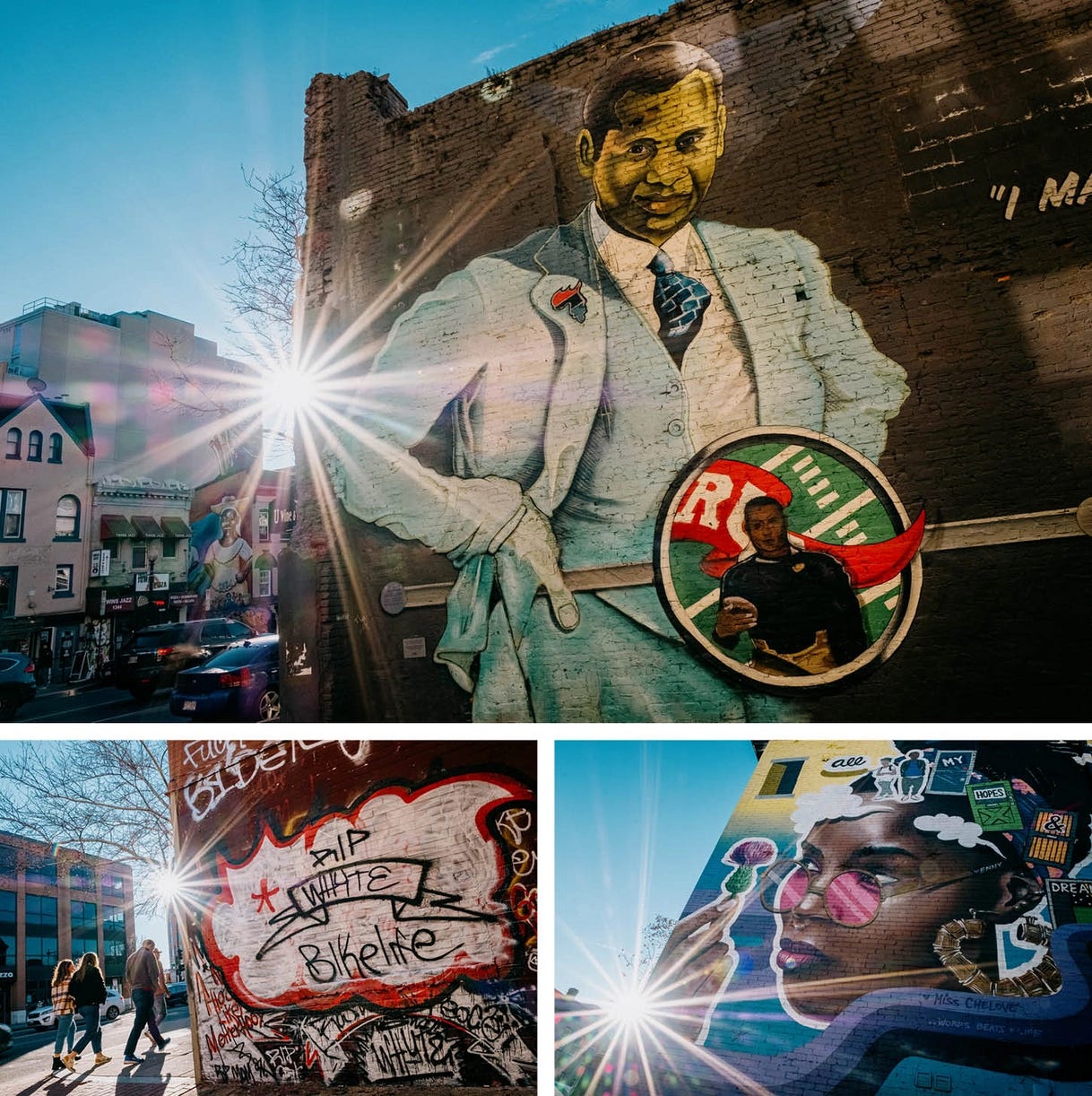Impact of Gentrification on African Americans in Washington D.C.
The city has undergone rapid gentrification, with many historically black neighborhoods experiencing significant changes in demographics, housing costs, and cultural identity.
Washington D.C. has undergone significant changes in the past few decades, with gentrification being a major factor in reshaping the city's landscape. While some see the influx of new businesses and residents as a positive development, the African American community has been disproportionately impacted by this phenomenon.
Here are some data points and statistics that support the impact of gentrification on African Americans in Washington, D.C. These data points demonstrate the significant impact that gentrification has had on African Americans in Washington, D.C., including displacement, economic inequality, and cultural changes.
In 1970, Washington, D.C.'s population was approximately 71% African American. By 2010, that number had dropped to 50%, according to the U.S. Census Bureau.
From 2000 to 2013, the median income of African American households in D.C. decreased by 7.6%, while the median income of white households increased by 17.8%, according to a report by the D.C. Fiscal Policy Institute.
A study by the National Community Reinvestment Coalition found that between 2000 and 2013, the number of affordable rental units in D.C. decreased by 50%, with African Americans and Latinos being disproportionately impacted.
According to a 2017 report by the D.C. Office of Planning, the average home price in D.C. increased by 48% from 2011 to 2016, with many of the fastest-growing neighborhoods located in historically black areas.
A 2019 study by the Urban Institute found that gentrification in D.C. has led to displacement of low-income residents, with African Americans being the most affected. The study found that in some neighborhoods, the African American population decreased by as much as 78% between 2000 and 2013.
Effects of Gentrification in Washington D.C.
Image courtesy - Politico
Displacement:
As property values in the city have increased, many long-time African American residents have been priced out of their neighborhoods. According to recent studies, the gentrification of neighborhoods in Washington D.C. has resulted in a significant displacement of African Americans. Many long-time residents have been forced to move out of their homes due to rising rents and property values. This has led to displacement, as many are unable to afford to live in their homes or find affordable housing in the same area. Leaving a devastating impact on the social fabric of these communities, as families and friends are separated, and local businesses are forced to close their doors.
Economic inequality: As property values and living costs rise, low-income residents may be forced to move to areas with fewer economic opportunities, exacerbating existing economic inequalities. The economic standards of African Americans in Washington, D.C. have been impacted by a range of factors, including systemic racism, gentrification, and economic inequality. According to data from the U.S. Census Bureau, African Americans in D.C. have lower median household incomes compared to other racial groups. In 2019, the median household income for African American households in D.C. was $52,063, compared to $95,953 for white households and $82,780 for Asian households. African Americans in D.C. are also more likely to experience poverty than other racial groups. In 2019, the poverty rate for African Americans in D.C. was 16.9%, compared to 5.8% for whites and 7.1% for Asians.
A Ward 4 resident protests against gentrification.
Cultural erasure: Gentrification can lead to the loss of cultural institutions and traditions that have been integral to a community's identity. As neighborhoods change, local businesses and cultural institutions may be forced to close or adapt to cater to new residents, leading to the erasure of community history and identity. Many of the historically black neighborhoods in D.C. have been home to vibrant African American communities, with their own unique cultural traditions and institutions. As gentrification has taken hold, these communities have been disrupted, with many long-time residents feeling a loss of cultural identity and social connection.
Reduced diversity: As gentrification brings in higher-income residents, the demographic makeup of a neighborhood can shift, leading to reduced diversity and a homogenization of culture. It has led to a loss of social capital and community cohesion, a loss of economic diversity, and a loss of cultural institutions and community spaces. The loss of cultural institutions and community spaces can have a significant impact on the character and identity of the neighborhood. African American neighborhoods in Washington D.C. have a rich history and cultural heritage that is closely tied to local businesses and institutions. When these institutions are lost, it can result in a loss of community identity and pride.
Inequitable development: Gentrification can lead to the uneven distribution of development and infrastructure improvements, with wealthier neighborhoods receiving more investment than lower-income areas. These disparities are also reflected in access to education and employment opportunities. African Americans in D.C. are less likely to hold advanced degrees and are more likely to experience unemployment and underemployment than other racial groups. According to a 2019 report by the D.C. Fiscal Policy Institute, the unemployment rate for African Americans in D.C. was 10.4%, compared to 4.1% for whites and 5.2% for Asians. The impact of gentrification goes beyond just housing. African American residents also face challenges in accessing basic services, such as healthcare and education, as well as employment opportunities. Many feel that they are being left behind in the new Washington D.C.
These factors, along with others, have contributed to persistent economic disparities for African Americans in D.C. Despite efforts to address these issues, including affordable housing initiatives and community-driven economic development projects, there is still much work to be done to ensure economic equity for all residents of the city.
These negative impacts of gentrification have led to significant social, economic, and cultural changes that have long-term consequences for communities, particularly for historically marginalized groups.





